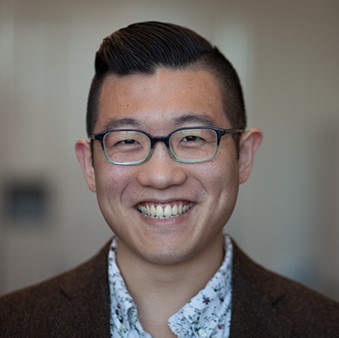 Dr. Adam Cheng, his mentor Dr. Reuben Harris, and colleagues are interested in understanding how different types of DNA damage lead to oncogenesis.
Dr. Adam Cheng, his mentor Dr. Reuben Harris, and colleagues are interested in understanding how different types of DNA damage lead to oncogenesis.
Their lab discovered that many of the mutations that lead to cancerous cell behavior result from cellular misregulation of mutagenic enzymes, specifically a 7-member family of APOBEC enzymes.
Dr. Cheng’s lab contributes to a body of research aiming to learn about APOBEC enzymes are regulated and how that biology can be manipulated to prevent cancer mutagenesis.
Dr. Cheng and colleagues studied herpesviruses, a family of viruses that has evolved novel strategies for counteracting specific human proteins in order to evade the immune system. Through this research, they discovered the first known inhibitor of APOBEC enzymes and solved the enzyme’s crystal structure using cryogenic electron microscopy.
Dr. Cheng supervised further work that showed viruses inhibit APOBEC proteins through multiple distinct mechanisms and that interactions between viruses and these enzymes have been longstanding and evolutionarily conserved.
Dr. Cheng and collaborators published this research in Nature Microbiology (PMID 30420783) and Science Advances (PMID 35476445). The crystal structure of inhibitory protein EBV BORF2 can be seen on Dr. Cheng’s website.
“This near-atomic resolution structure will likely enable us to develop targeted therapies against APOBEC enzymes that may be used to treat a variety of cancers.”
Dr. Cheng hopes that over the next decade, this foundational viral protein research will ultimately translate to improved outcomes for patients with cancer. Dr. Cheng will continue his research as a member of UW’s Hematology/Oncology fellowship.
Dr. Cheng contributed to this research during his PhD 2015-2019 and acknowledges his PI, Reuben Harris, PhD, & other collaborators who continued this research: Sofia Moraes, Jaime Yockteng-Melgar, Nadine Shaban, Elisa Fanunza, Craig Bierle, Stephen Rice, Lori Frappier.


